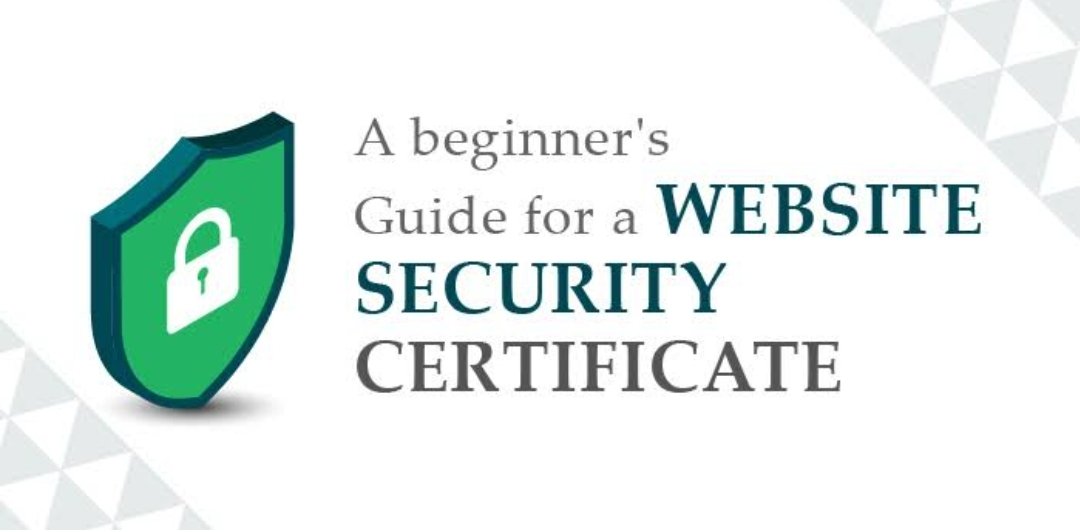Enhancing Online Trust: A Comprehensive Guide to Website Security Certificates

In the digital era, the security of online information has become a top priority for both website owners and visitors. Website security certificates play a pivotal role in establishing a secure environment for internet users by encrypting data and verifying the authenticity of websites. This comprehensive guide aims to shed light on the importance of website security certificates, how they work, and their critical role in enhancing online trust and security.
Understanding Website Security Certificates
Website security certificates, commonly known as SSL (Secure Sockets Layer) or TLS (Transport Layer Security) certificates are digital documents used to secure the connection between a user’s browser and the website they are visiting. These certificates serve two main functions: they encrypt the data transmitted to prevent interception by malicious actors, and they authenticate the identity of the website, ensuring that users are communicating with the legitimate site they intend to.
The Importance of Website Security Certificates
The advent of website security certificates has transformed the security landscape of the Internet in several ways:
- Data Encryption: By encrypting data in transit, website security certificates protect sensitive information such as passwords, credit card numbers, and personal details from being intercepted by hackers.
- Authentication: These certificates verify the legitimacy of a website, reducing the risk of phishing attacks where fraudsters create fake websites to trick users into divulging personal information.
- Building Trust: The presence of a security certificate is indicated by a padlock icon in the browser’s address bar, signaling to users that the site is secure. This visibly enhances user trust and confidence in the website.
- SEO Benefits: Search engines like Google favor HTTPS-encrypted websites, meaning that sites with security certificates may receive a ranking boost, leading to increased visibility and traffic.
How Website Security Certificates Work
The process behind website security certificates involves several key steps:
- Issuance: A website owner must apply for a certificate from a Certificate Authority (CA), an entity responsible for issuing digital certificates. The CA verifies the identity of the website and its owners before issuing the certificate.
- Installation: Once issued, the certificate must be installed on the website’s server. This process varies depending on the hosting platform and server software.
- Encryption: With the certificate installed, the website can establish secure connections using HTTPS. When a user connects to the site, the server shares its public key with the user’s browser, enabling a secure, encrypted communication channel.
Types of Website Security Certificates
There are several types of website security certificates, each designed to meet different needs and levels of security:
- Domain Validated (DV) Certificates: The simplest form of certification, DV certificates verify that the applicant owns the domain. They are quick to issue and are suitable for websites where trust and identity verification are less of a concern.
- Organization Validated (OV) Certificates: OV certificates require more extensive verification, including the legitimacy of the organization applying for the certificate. They provide a higher level of trust and are suitable for business websites.
- Extended Validation (EV) Certificates: Offering the highest level of trust, EV certificates involve a thorough verification process, including the legal, physical, and operational existence of the entity. Websites with EV certificates display the organization’s name in the address bar, providing maximum user trust.
Best Practices for Implementing Website Security Certificates
To maximize the benefits of website security certificates, website owners should:
- Choose the Right Type of Certificate: Select a certificate that matches the level of trust and security your website needs.
- Keep Your Certificate Up to Date: Monitor expiration dates and renew certificates in advance to avoid lapses in security.
- Implement HTTPS Site-Wide: Ensure that HTTPS is enabled across all pages, not just log in or checkout pages, to protect all data exchanged on your site.
Also Read : BMSEOBlogs
Conclusion
Website security certificates are a cornerstone of internet security, providing essential encryption and authentication to protect data and build trust online. By understanding and correctly implementing these certificates, website owners can significantly enhance the security and credibility of their online presence, fostering a safer internet for all users.